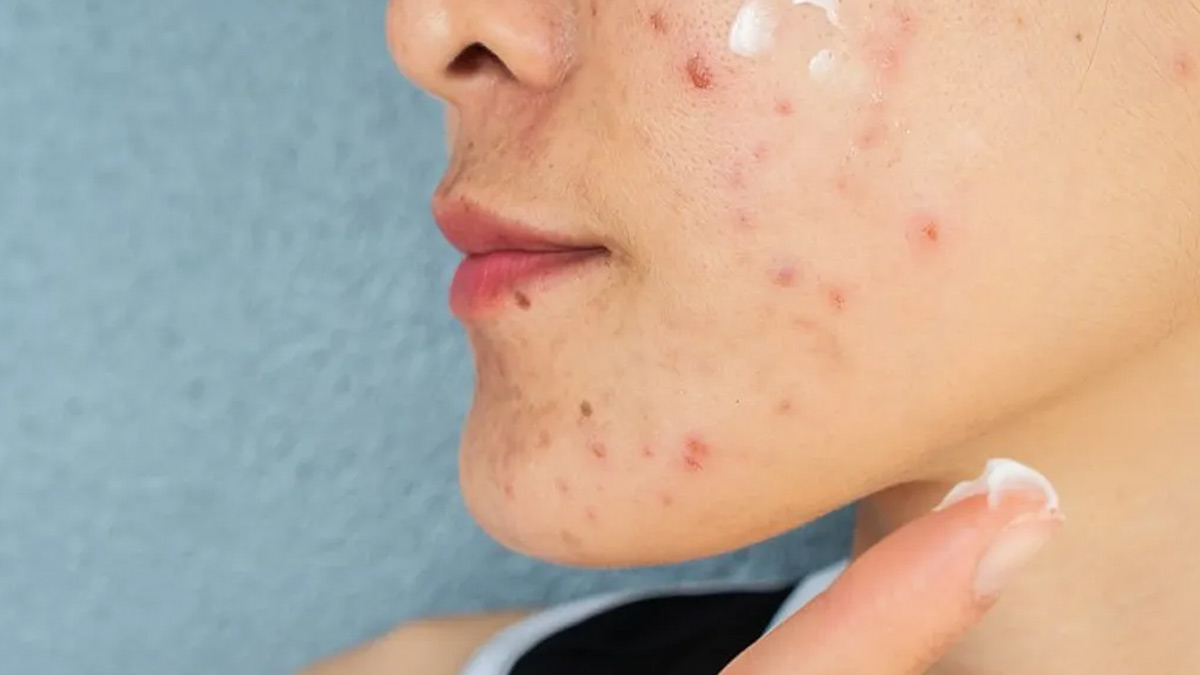A recent study has confirmed that many widely-used anti-acne products may pose significant health risks, particularly an increased risk of cancer. The findings have raised alarms about the presence of benzene, a known carcinogen, in products such as Proactiv and Clearasil, which are frequently used by teenagers across the United States. The study highlights the need for stricter regulations and more thorough testing by the U.S. Food and Drug Administration (FDA) to protect consumers from potentially dangerous substances lurking in everyday skincare items.
Discovery of Benzene in Acne Products
The study, conducted by a team of researchers from Valisure laboratory in New Haven, Connecticut, along with professors from Yale and Long Island universities, analyzed over 100 benzoyl peroxide-based acne treatments. The findings revealed that nearly one-third of the products tested contained high levels of benzene, far exceeding safety limits set by the FDA. In particular, Proactiv, a popular acne treatment brand, was found to contain 18 times the allowable amount of benzene. Similarly, a face wash under CVS’s private label contained 13 times the FDA’s recommended safe levels.
The presence of benzene in these products is especially concerning due to its established link to cancer. Benzene is a volatile chemical known to increase the risk of leukaemia and other cancers when individuals are exposed to it in high quantities or over prolonged periods.
FDA Scrutiny and Consumer Concerns
The FDA has been under increasing pressure to take swift action in light of these findings. While the agency has been investigating the claims, its slow response has raised concerns about the regulatory oversight of consumer health products. Valisure’s initial analysis earlier this year prompted the company to file a petition with the FDA, urging the recall of contaminated products. However, as of July, the FDA has yet to take significant action, leaving many consumers vulnerable to potential health risks.
This recent study, published in the Journal of Investigative Dermatology, was peer-reviewed, adding credibility to its findings. This follow-up analysis also addressed criticisms of the initial study, which had tested products at elevated temperatures of around 122°F (50°C). In contrast, the new study tested products at room temperature, producing more accurate and reliable results. Despite this, the study still found that several acne treatments, including some from popular brands, contained unacceptable levels of benzene.
Also Read: Gurugram Sees Surge In Dengue Cases With 90 Reported; Health Officials Urge Precautions
Benzene Exposure and Potential Health Risks
In addition to the risk of benzene contamination at room temperature, the study found that benzene levels could increase when acne products were exposed to ultraviolet (UV) light at body temperature. This is particularly troubling as many acne treatments are used during the day, when individuals are likely to be exposed to sunlight. The combination of benzene and UV exposure could potentially heighten the cancer risk for users of these products.
Although not all brands were implicated, some prominent products, including certain offerings from Clearasil, contained benzene levels slightly above the U.S. safety limit of 2 parts per million (ppm). On the other hand, around 70 products, including Neutrogena and Clean & Clear, were found to contain benzene levels within the acceptable range when stored under normal conditions.
Manufacturers Respond to Allegations
In response to the study, representatives from CVS Health and Reckitt Benckiser Group, the maker of Clearasil, have stated their commitment to consumer safety. CVS has emphasized that it will continue to ensure its products meet safety standards, while Reckitt Benckiser has expressed confidence in the safety of its Clearasil products. Meanwhile, Sun Pharmaceutical Industries Ltd., the parent company of Proactiv’s manufacturer, has yet to respond to inquiries regarding the findings.
The FDA has required drugmakers to test certain products, especially those made with hydrocarbons such as benzoyl peroxide, for benzene since 2021. However, it remains unclear whether the companies producing these acne treatments have conducted such tests. Given the potential risks highlighted by the study, dermatologists and consumer safety advocates are urging manufacturers to increase the scrutiny of their products.
Also Read: Lucknow Sees Spike In Dengue And Malaria: 61 Dengue, 4 Malaria Cases Reported In A Day
The Need for Stricter Regulation
The discovery of high benzene levels in everyday acne treatments has cast a spotlight on the need for more stringent regulatory measures. Christopher Bunick, a Yale University dermatologist and co-author of the study, stressed the importance of manufacturers taking responsibility for the safety of their products. “They have a duty to the consumer to check,” he stated, calling for more diligent testing and greater transparency from companies.
The findings also raise broader concerns about the FDA’s ability to regulate and oversee the safety of skincare products. With benzene having been detected in a wide range of consumer goods in recent years, from hand sanitizers to sunscreens, the need for more proactive measures is becoming increasingly apparent.
Bottomline
The new study confirming high levels of benzene in popular acne treatments like Proactiv and Clearasil has sparked fresh concerns about the potential cancer risk posed by these products. While some brands have reassured consumers of their commitment to safety, the FDA’s delayed action underscores the need for stronger regulatory oversight. As the skincare industry continues to evolve, stricter testing protocols and transparency will be crucial in ensuring consumer safety and preventing exposure to dangerous chemicals like benzene.
